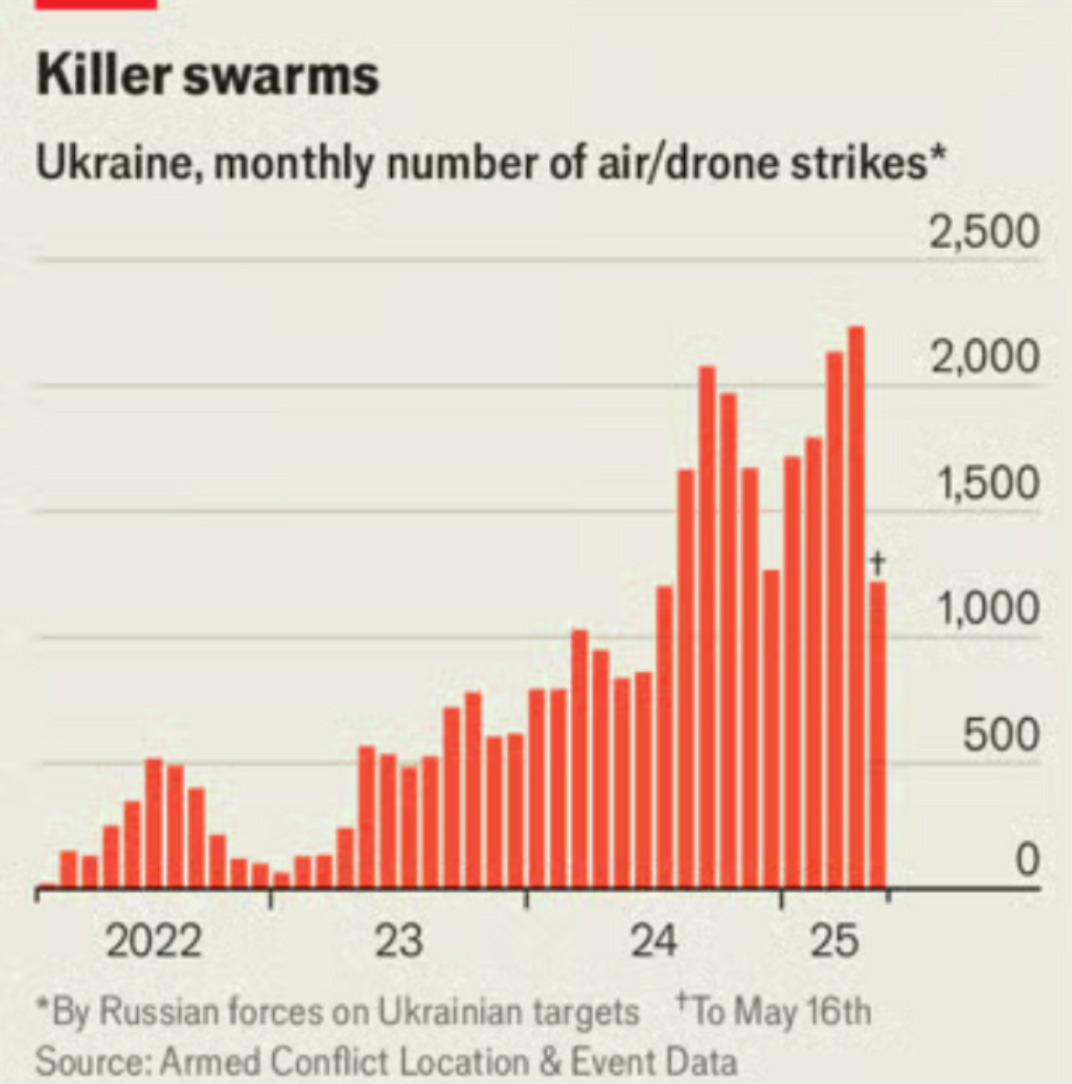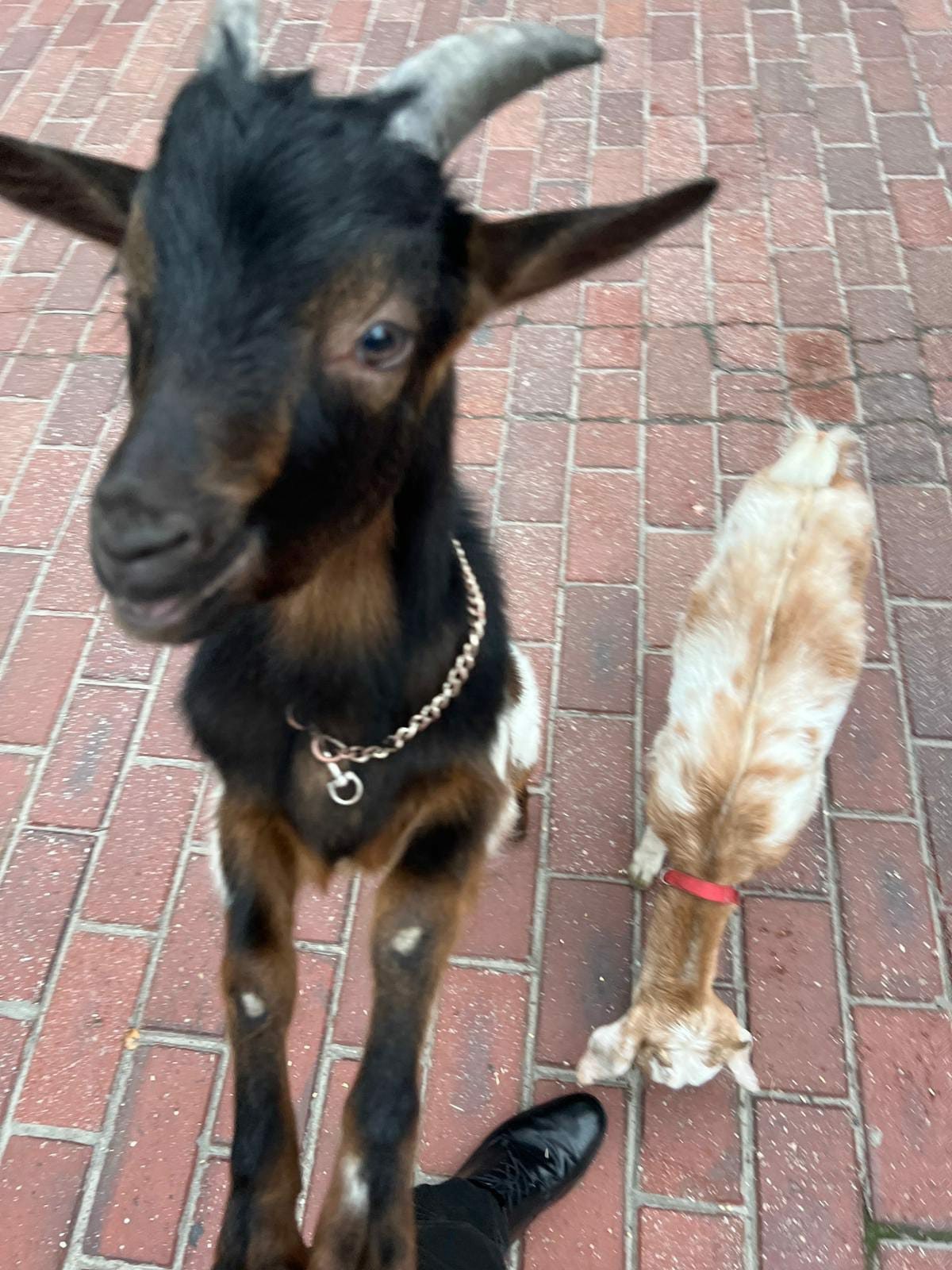Editor’s Note: Air raids are becoming more frequent, with saturation drone attacks happening on a frequent basis. See this latest chart from The Economist, showing how many attacks there have been as of mid-May.
We’re doing everything we can to keep our team safe.
But we need your help to get the gear we need to report – first aid kits, body armor, batteries. Upgrade now to help.
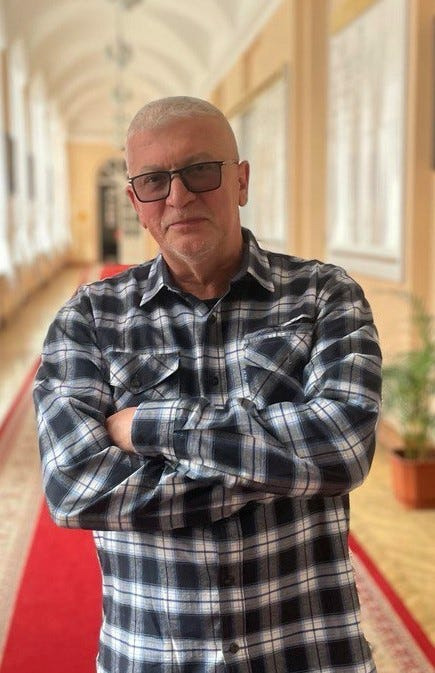
To defeat the enemy, you must first understand them.
That is how Oleksandr sees his work.
Once a Russian philologist – someone who studies the history of languages – he now studies the people who are invading his homeland and threatening his loved ones.
Oleksandr says his job is similar to that of a biologist: to understand a frog, you have to dissect it. He is now dissecting Russian imperialism: examining its inner workings to expose and teach the Ukrainian security services.
"I went from being a teacher of the history of the Russian language to a person who hates everything Russian," said Oleksandr Bondarenko, head of the Department of East Slavic Studies at the Taras Shevchenko National University of Kyiv.
Since the beginning of Russia’s full-scale invasion, Ukrainians have started to reject the Russian language, which has been imposed on them for centuries and now weaponized by Moscow as part of its hybrid warfare.
A collective postcolonial trauma, disgust toward anything associated with the aggressor, and the war itself have led Ukrainians to symbolically disregard the Russian language.
During last week’s negotiations in Istanbul, for example, the Ukrainian delegation communicated with the Russians exclusively through an interpreter, deliberately separating themselves from their counterparts.
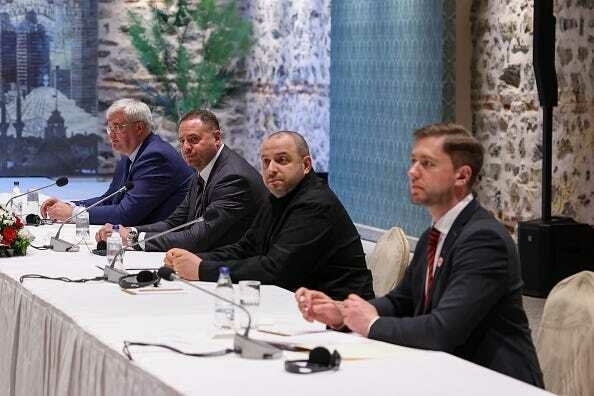
However, for professionals on the front lines confronting Russians, understanding their enemy — their mentality, language, and culture — is key. Conducting reconnaissance, recruiting Russians for collaboration by understanding their mentality, analyzing intercepted information, identifying saboteurs, and carrying out counter-propaganda — all of this becomes possible when you study Russians under a microscope.
“I came to understand that first comes the Russian language, and then the boot of the Russian soldier and the Russian tank follow,” Oleksandr said.
Oleksandr grew up as an ordinary Soviet citizen, steeped in the ideals of internationalism. During those times there were no Russians, Ukrainians, Kazakhs, or Georgians — only one people: the Soviet people. And they had only one language: Russian.
The Ukrainian language wasn’t perceived as one. In fact, over the last 400 years, Ukrainian language has been banned at least 134 times — mostly by the Russians. Amid this lack of recognition, Ukrainians did not have a stable linguistic identity. As a result, for a long time, Ukraine was rarely perceived as an independent country – instead, as just another Russian territory.
The regions now considered predominantly Russian-speaking are a direct result of forced Russification, which intensified after Stalin's genocidal campaign known as the Holodomor, committed in 1932–1933. About 4.5 million people were exterminated by a man-made famine.
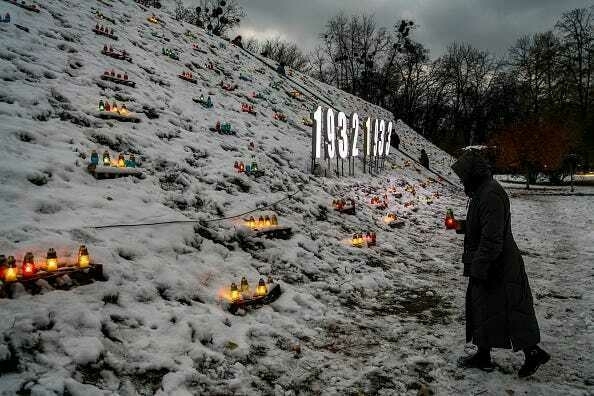
It wasn’t until the Soviet Union began to fall apart that Oleksandr started to realize his life had been steeped in propaganda, and that he had been living in a country that was not what it claimed to be.
The inflection point in his career, Oleksandr confessed, happened in 2014, when Russia seized Crimea and parts of Donetsk and Luhansk regions.
Since then, he slowly began to change his curriculum: he no longer teaches that Russian was a language close to them — it was now the language of their enemy.
“One of the key areas [we focus on teaching] is understanding the 'mysterious Russian soul.’ But without illusions or the promotion of their ideas, as is often the case in many Slavic studies programs in the West, which are in reality not truly Slavic studies, but rather Russian studies,” shared Oleksandr with The Counteroffensive.
Oleksandr is also part of a group of academics who are training specialists for counter-propaganda purposes. He teaches his students how to use knowledge of the Russian language, literature, history, and culture to, for example, infiltrate society and spread disguised counter-propaganda content that will destabilize Russia from within.
This initiative was recognized by Ukraine’s Security Service academy in 2016, which started a partnership with the department Oleksandr now leads.
During the first step of Russia’s aggression in 2014, Ukraine had to shift their inherited Cold War-era methods, which targeted the United States as the aggressor. Now, the enemy was a country that until recently had been fighting on their same side.
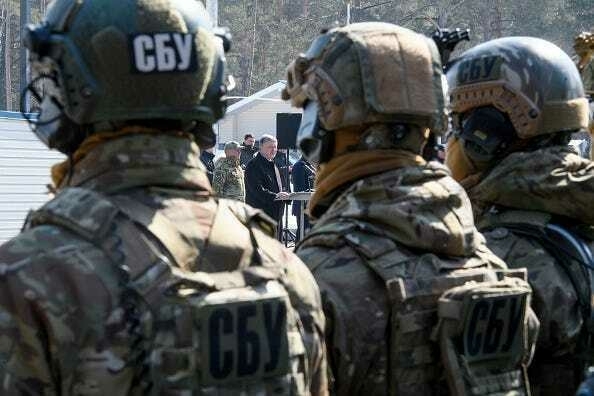
For years before the 2014 invasion, Moscow had been weakening Ukrainian security services from within. Under the Ukrainian presidency of Viktor Yanukovych, known to be a Kremlin puppet, nearly all efforts to counter Russian FSB agents were dismantled.
But Ukraine had some inherent strengths when it came to counter-intelligence: a deep familiarity with Russian methods.
The forced imposition of culture, language, and ‘shared’ traditions turned many Ukrainians into highly skilled operatives behind enemy lines and in occupied territories. Moreover, close family ties with Russians enabled intelligence gathering deep inside Russia.
So, starting in 2015, the CIA invested tens of millions of dollars to transform Ukraine’s outdated Soviet-style security services. As a result, Ukraine began to carry out successful independent operations.
In 2016, for instance, Ukrainian intelligence agents assassinated Russian mercenary Arsen Pavlov (callsign ‘Motorola’), a war criminal involved in the conflict in eastern Ukraine in 2014, by blowing him up in an elevator. After 2022, similar operations would reach even deeper into Russia’s rear, eventually targeting senior Russian military leadership.
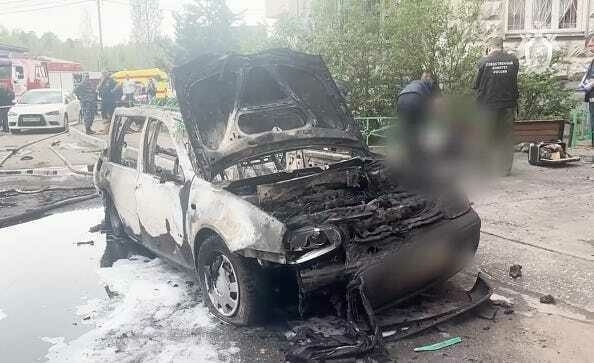
As of now, Ukraine’s Security Service (SBU), along with other intelligence agencies, is capable of striking deep into Russia with drones, organizing sabotage missions, and destroying key military-industrial facilities.
Oleksandr himself has contributed to SBU’s success by training personnel, even though his role has been mostly academic. He has delivered humanity-focused lectures to special forces operatives undergoing retraining, as well as to cyber specialists and hackers.
This linguistic context is crucial to defend the Ukrainian information, cyber, and communication space from Russian attacks, as well as waging a hybrid warfare.
“For example, identifying someone’s region of origin based on specific pronunciation can be critical during interrogations. Or understanding how to communicate with different target audiences based on gender or age,” Oleksandr explained.
Oleksandr admits that he had been expecting a new phase of the war since 2019, when he observed a growing spread of ‘What difference does it make?’ among Ukrainians during that year’s presidential elections.
"At that moment, I felt relief that shatters your cognitive abilities. Just waiting for [the war] to happen, and seeing that nothing is being done to prepare for it — that was the scariest part," Oleksandr noted.

When Russia’s full-scale invasion started, Oleksandr’s department was renamed the Department of East Slavic Philology. Russian, the language that is rejected by many Ukrainians, is still taught there.
Yet, students are learning technologies of linguistic influence, state strategic communications, and other applied disciplines that are based on the aggressor’s language and culture, which can then be used against it.
"Working with Russian propaganda, we can’t just put on a white lab coat and think, ‘they’re throwing shit at us, but we’re clean and fluffy.’ That doesn’t work in hybrid warfare," Oleksandr told The Counteroffensive.
Currently, Ukraine's level of counter-propaganda is significantly lower than Russia's influence. Moscow pours large sums into spreading its ‘truth.’ In 2024 alone, it spent $27 million per week.
Oleksandr wants to fix that by training specialists who can effectively spread messages deep in enemy territory, such as his students.
"During the study of strategic communications, we assigned our students homework to write a script for a computer game that could be launched as propaganda in enemy territory,” said Oleksandr.
He is proud of one of his students who wrote a poem that could be circulated among Russians, containing anti-war messages to remind them that their family, wife, and children are waiting for them at home.
The poem encourages them not to continue fighting, and instead to consider surrendering or avoiding mobilization. As he said, it is a type of content that is ready to spread among Russians.
Meanwhile, Oleksandr is convinced that ordinary citizens should not be delving into Russian culture – almost like a nuclear scientist warning of the dangers of an average person handling plutonium.
“An average person can’t tell the difference between honey and poison. This poison slowly eats away at them… Stay away from Moscow in all these matters,” Oleksandr said.
NEWS OF THE DAY
Good morning to readers; Kyiv remains in Ukrainian hands.
RUSSIA RETURNED KYIV DEPORTEES IN POW SWAP: More than half of the civilians who returned to Ukraine as part of the ‘1000 to 1000’ prisoner exchange were convicted of criminal offenses unrelated to the war, according to Suspilne. Russia had planned to deport them to Ukraine anyway after they served their sentences.
Among them are 15 civilians who had been serving sentences in penal colonies located in the occupied territories of Kherson and Mykolaiv regions. Nearly 50 others were Ukrainian citizens living in Russia who had been convicted of various crimes. Ukraine did not expect Moscow to include them in the exchange.
FAKE DRONE ATTACK ON PUTIN: The Kremlin staged an incident suggesting Putin’s helicopter came under a massive drone attack during his visit to the Kursk region, The Moscow Times reported.
Security forces reportedly promoted the story to portray Putin as close to the people and willing to face risks and sacrifices. His safety during the trip, despite frequent Ukrainian drone strikes in the area, was allegedly ensured at the highest level. The claim was circulated by the Ministry of Defense via state broadcaster VGTRK.
RUSSIA DID NOT PRESENT CEASEFIRE ‘MEMORANDUM’: Russia has yet to provide Kyiv with its ceasefire ‘memorandum’ outlining conditions to halt hostilities, making a breakthrough in negotiations unlikely, Zelenskyy said.
Both sides’ memorandums are expected to be discussed at the next round of peace talks in Turkey, scheduled for Monday, June 2. Although Moscow has not formally presented its demands, it claims it may consider a ceasefire if Kyiv halts mobilization and stops receiving Western weapons.
GOATS OF WAR
You have GOAT to be kidding me! Tim saw these two fellas while walking near St. Sophia cathedral in central Kyiv; they were enjoying the sunset and even a few bits of seeds he got to feed them.
Stay safe out there!
Best,
Mariana

